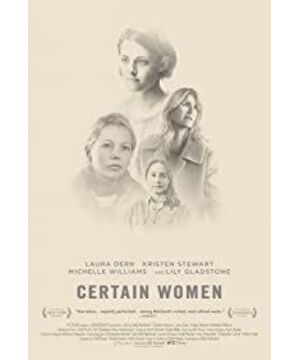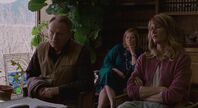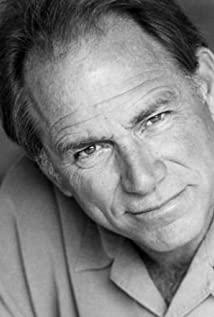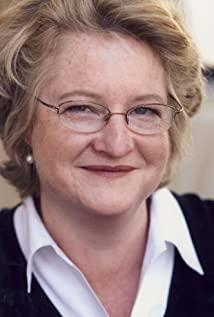If you want to choose the most independent director of the 21st century, I will definitely vote for Kelly Reichardt. Kelly's film cannot be called a blockbuster, because her film needs too much space, and its production The continuation of time plays a key role in precise mise-en-scene and expansion of inner depth (including in terms of space, emotion, etc.).
Let's take a simple example first. In a long shot of about six minutes, in a shot with sufficient depth of field, a family in the foreground is rushing out of the frame gradually, leaving an empty scene, and then in the depth of field screen in the back In the sky, the superposition is cleverly used, fading into the family and into the frame, while the continuation of time spans time and space in a non-split state (the same shot), and the thickness of time is extended.
As a digression here, Kelly has a Bole Hines who almost finished all her productions, Hines made Carroll as a male director and its success is not just about photography, art and attention to detail The overall control of the film, more importantly, can lead to a key point is "understanding", and "understanding" replaced by Kelly has become the composition of a film. A brief summary of the above is a wedge, introduced into Kelly's "Some Kind of Woman". In fact, this film did not win any international awards, but it was included in the top ten of the year by the always cold film manual, which also shows that it has a charm that cannot be ignored. The story of the film is very simple to show the situation of the three women. From an intuitive point of view, the width of the space is the most obvious. From the city to the suburbs and then to the wide horse farm, a progressive regional space is formed. Compared with the more complex emotional depth, the more important aspect of space is the precision of the form, and on the other hand, it also promotes the formation of emotional depth.
To put it simply, in the first city story, the characters' situations are the most complicated, so the density of the city is particularly important, while the last story (which is also the most spacious in space) has a simpler emotional orientation (love and loneliness). Formally, such an expansion also acts on the audience's emotions (in terms of the viewing experience, this is why the last story is the simplest, but it is easy to move). As for the expansion of emotional breadth, this must be put together with Kelly's element of "understanding", which in "A Certain Woman" does not exist in simple texts. Themes similar to Antonioni's "Alienation and Anxiety" have always been expressed not in text but in more formal lenses and more implicit emotional expressions.
Taking the third story as an example, the horse farm girl's admiration for the female teacher has no verbal confession. Through extremely natural and realistic methods, she projects an extension of her affection. The repeated dinner table conversations will occasionally hit the taciturn horse farm. The woman's face, to capture its timely state; wandering away from the city streets, and the long shot of the character in the car, all temporarily jump out of the story to extract the character's emotion, fill in, shape and excavate and give Enough time for emotional depth. For such meticulous techniques, Kelly's understanding of the characters to be created, and the establishment of a multi-layered structure is that this understanding not only exists in the understanding of a certain image the creator wants, but also exists in The character itself (the love that the horse farm girl does not say to the teacher is also the understanding of a woman as a woman) It should also be emphasized that "A Certain Woman" is not a feminist film, according to Kelly's original words in an interview "Such a label. Because the film itself does not have any program or message that must be conveyed. All things considered, this is first and foremost a film that builds characters. It is true that this is a film written by a female writer, a female director, and a female Movies that come out of a female filter for the protagonists. But to define it as feminism ignores every other aspect of life. Even though I am a feminist and I defend it.”
That is to say, we can put aside the introduction of feminist awareness first, and look at the situation of women at the level of understanding. The third story has already been described above, in the second story the woman is portrayed as a strong position (family position), but in addition to the conflict between the family relationship and the daughter, the intervention of an old man who completely ignores her is The re-examination of her own situation, Michelle (starring) greeting the old man is wonderful. The old man looks into the distance out of the window, ignores her and turns away. The eyes that do not meet each other become characters An insurmountable chasm.
The first story has a male character forming an ingenious reference. The male is lost and lonely, but the same female is also in a lonely situation. Will the viewer feel pity for the female state rather than the male state? The same status quo of gender differences can give a state of re-examination of the problem, of course, the essence of the answer is to ask for guidance to pay attention to life itself.
The situation of the women in this story is obviously in a state of loss, but he is tenacious and witty and at the same time shows an understanding of men, and this understanding guides us in the reverse direction to understand women. Under the appearance of loneliness and loss, is their situation helpless? There is some kind of sublime power in it. "Understanding" has become a sincere way of shaping life experience and discovering the author's inner "secret". For example, the in-depth description of male hypocrisy in "After" is obviously due to Hong Sangxiu's personal life experience, while Kelly keeps the story continuous. It strips out the excess components, leaving the most core part, which seems to be on the surface of life, but constantly sees another width at the moment that is about to be touched, and detours in it.
This technique is in the same vein in Kelly's films. If you look back at the debut film "Yesterday Happy Stealing", you can see the taste of this glass color more purely, and this is the charm of Kelly.
View more about Certain Women reviews











